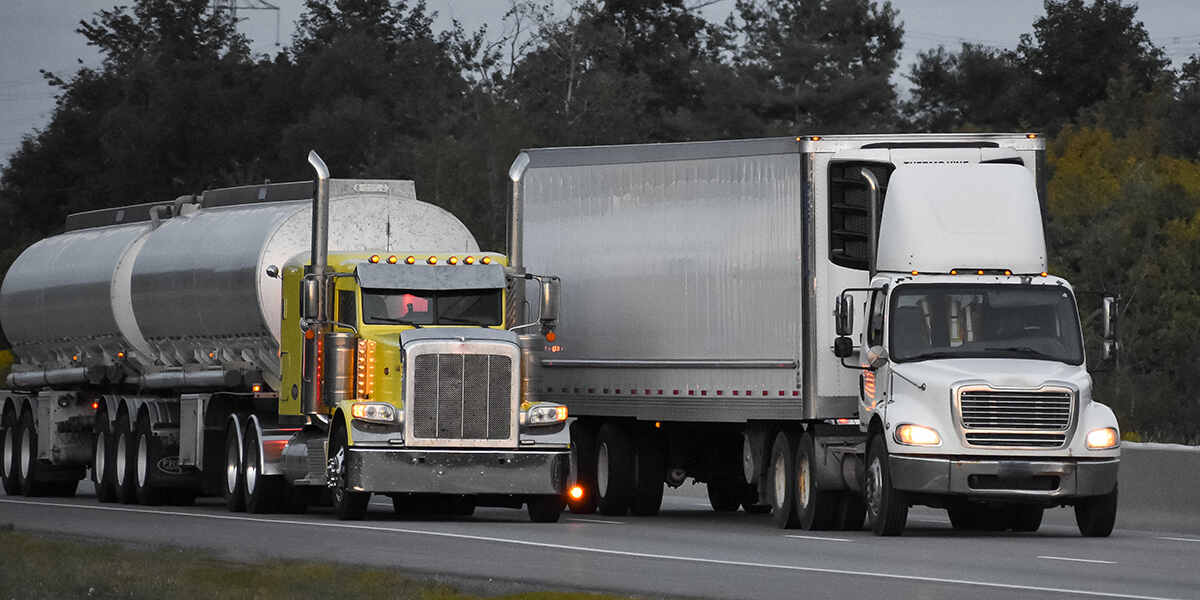Uncovering DOT Weight Regulations for Safe Road Compliance

Complying with the Department of Transportation’s seemingly endless list of requirements can feel overwhelming, especially for new or inexperienced truckers. Although an FMCSA compliance checklist can help you stay organized, becoming more familiar with each regulation ensures you don’t miss small details that impact your reputation and rating. For example, DOT weight regulations may vary depending on the vehicle type and state.
FMCA Filings outlines how to comply with vehicle weight requirements below. Keep reading to learn where your vehicle lands on the scale.
The Importance of DOT Compliance
The Federal Motor Carrier Safety Association develops and updates various standards for roadway compliance. Commercial carriers must follow these regulations to the letter to maintain legal and safe roadway operations. Otherwise, they could put their drivers and other highway users in danger.
Additionally, a non-compliant carrier could face debilitating penalties, such as:
- Expensive fines
- Court cases
- Jail time
- Revocation of operating authority
- Damaged professional reputation
Vehicle weight restrictions are among the most essential and broadly misunderstood regulations.
What Are the DOT Weight Regulations?
The FMCSA determines weight regulations by gross vehicle weight rating. GVWR differs from the actual weight of the vehicle. While your truck may weigh only 9,000 pounds, it likely has a higher GVWR.
The weight regulations for a truck and trailer state that vehicles with a GVWR of over 10,000 pounds must comply with the FMCSA’s DOT requirements. Therefore, you must register your truck with the DOT and obtain a DOT number alongside any other required permits for your operating area. Federal regulations disallow vehicles weighing over 80,000 pounds.
Why Weight Regulations Exist
Truck weight limits protect public roadways, truckers, and other drivers who use the roads. The primary reasons they exist include:
- Damage to the road’s surface: Overweight vehicles cause more damage to road materials. Bridges are especially vulnerable to the stress heavy-weight trucks impart. Road use by truckers incurs more damage than any other vehicle.
- Increased roadway hazards: Combine road damage with potentially unstable loads, and you have a recipe for more dangerous wrecks. Traffic accidents can severely injure and even kill drivers while creating frustrating traffic jams for uninvolved parties.
- Vehicle and load damage: Drivers need special training to maneuver and manage heavier loads. Otherwise, the vehicle and its cargo can become damaged, costing thousands of dollars in lost goods and equipment.
Understanding Federal vs. State Regulations
While federal GVWR limits range between 10,000 and 80,000 pounds, state regulations may vary. Some states allow vehicles with a higher GVWR than the federal limit. Others allow lower GVWRs.
One difference between federal and state DOT weight regulations is that states usually place limitations depending more on a vehicle’s group of axles than the overall GVWR. Single axles have limits between 10,000 and 22,500 pounds, while doubles and tridems range between 17,000 and 50,000 pounds. Check the regulations in the states on your route to ensure you comply.
What About Pickup Trucks and Other Commercial Vehicles?
Pickup trucks, farm equipment, and landscaping vehicles typically have more lax regulations regarding their weight and compliance. However, they still may be subject to the restrictions listed below:
- Pickup trucks: Most pickup trucks don’t need a DOT number. Neither must they adhere to the FMCSA’s safety regulations. However, when a truck pulling a trailer has a GVWR of 10,000 pounds or more, it must comply with federal and state mandates.
- Farm equipment: Regulations about farm equipment depend on the state. If you use your farm equipment within one state, you likely won’t need to obtain a DOT number to use it. However, farm equipment earmarked for interstate use, such as hauling livestock to national shows or auctions, may need permits.
- Landscaping vehicles: Regulations on landscaping vehicles depend on how the state handles small commercial vehicles. A landscaping vehicle that crosses state lines will certainly need a DOT number.
- Passenger vehicles: If your bus carries between nine and 15 passengers for payment, it must have a DOT number. Buses transporting 15 or more people without payment also require one.
How To Carry Out Weight Compliance
The DOT has weigh stations located along most highways. Truck drivers use these stations to remain aware of their vehicle’s weight. Federal laws require drivers to use each weigh station they encounter unless it is out of service.
Using a weigh station is easy. Simply guide your vehicle up the entry ramp and position it over the scale. The station will record and report your vehicle’s weight, ensuring it meets the area’s weight requirements.
Easy Compliance and Streamlined Filings With FMCA Filings
DOT weight regulations aren’t the only restrictions you should know about. The FMCSA also has detailed DOT number size requirements for your vehicle’s decal. Use FMCA Filings to discover informative resources and simplify compliance with user-friendly, accessible filings. Speak with a professional agent at Federal Motor Carrier Authority Filings today to learn more!